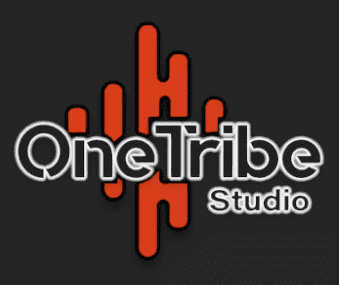Getting Accepted into a Music Label


The vast and demanding music industry offers many opportunities for talented artists. However, switching to a music label remains a major goal for many.
So in this in-depth article, we’ll explore the essential strategies and steps to increase your chances of being accepted into a label.
Integrate a Label: Creation of an Exceptional Musical Product
The first crucial step to attracting the attention of a label is the quality of your music. Labels are looking for innovative and creative artists.
Invest time in producing unique tracks, showcasing your distinctive style. So explore different sounds, experiment with arrangements, and make sure each track is an authentic representation of your artistry.
Integrate a Label: Build a Strong Online Presence
An active online presence is a major asset in the modern music industry. Use streaming platforms like Spotify, Apple Music and SoundCloud to share your music with a wide audience. Develop an authentic relationship with your audience via social networks.
Create engaging content, share behind-the-scenes moments, and interact with your fans. An engaged audience can therefore attract the attention of labels.
Search for Appropriate Labels
Each label has its own musical identity. Do extensive research to find those who align with your musical style and artistic vision.
Explore their current catalog, so look at the artists they work with and make sure your music complements their overall aesthetic.
Build a Professional EPK for Label
A complete electronic press kit (EPK) is essential to present your application in a professional manner.
Be sure to include a captivating bio, high-resolution photos, links to your music, glowing press reviews, and all relevant information about your past performances. A well-designed EPK can therefore be a powerful marketing tool.
Integrate a Label: Participate in Concerts and Events
Live performances are unique opportunities to showcase your talent and stand out. Look for opportunities to play festivals, local clubs and other relevant scenes. Labels often appreciate artists who can capture a live audience, demonstrating their potential on stage.


Building Relationships in the Industry
Networking is a crucial part of success in the music industry. Connect with other artists, producers, and industry professionals.
Attend music events, conferences, and be active in specialized online communities. The relationships you build can therefore open doors and give you valuable advice.
Approach Labels Correctly
When you contact a label, personalize your approach. Explain why your music fits their catalog in a specific way. Be professional and concise in your communications.
Avoid generic approaches, show that you have researched the label and understand how your music might therefore fit.
Working on Your Image and Your Brand
A strong and memorable image can make the difference in the label selection process. Work on your visual branding by creating a distinctive logo, consistent visuals, and make sure your overall image matches your music.
Labels are therefore looking for artists who have a clear and attractive visual identity.
Collaborate with Other Label Artists
Collaborations can be beneficial on several levels. Working with other artists can expand your audience and demonstrate your artistic adaptability. Labels often appreciate artists’ ability to work with different talents to create something new and exciting.
Demonstrate a Long-Term Commitment to Labels
Labels are looking for partners who are committed over the long term. Show your determination by posting regularly, maintaining an active presence on social media, and participating in tours.
Artists who demonstrate a long-term commitment are therefore more attractive to labels looking to invest in long-term careers.


Integrate a Label: Prepare a Solid Career Plan
Develop a detailed career plan showing your short- and long-term goals. Labels want to see artists who have a clear vision of their future. Explain how you plan to develop your careerwith the support of the label and how you therefore plan to stand out in a competitive market.
Integrate a Label: Educate Yourself About the Industry
A thorough understanding of the music industry can boost your credibility. Keep up to date with the latest trends, challenges and opportunities. An informed artist is therefore better prepared to navigate the complex world of the music industry.
Integrate a Label: Investing in Professional Production
The quality of musical production is a determining criterion for labels, often defining the boundary between amateurism and professionalism.
Investing in a professional recording of your songs is not only a crucial but also an essential step. This is not only limited to sound capture, but also includes mixing and mastering carried out by experienced engineers.
The clarity of the mix, the balance of the instruments and the overall sound quality help create a demo that stands out.
Financial investment in production thus demonstrates your commitment to quality, something that labels take very seriously when evaluating new talent.
When working on your production, don’t be afraid to experiment with different producers or sound engineers who might bring a unique perspective to your music.
Collaborating with industry professionals can therefore also open doors, as they often have contacts and relationships with labels. Ultimately, professional production is not just an expense, but a strategic investment in your music career.
Integrate a Label: Review Your Presence on Social Networks
Social media presence is about more than just creating profiles and sharing your music. It is a dynamic platform where interaction with your audience is essential.
Spend time creating engaging content that goes beyond just promoting your music. Share behind-the-scenes moments, anecdotes about your creative process, and interact with your fans in an authentic way.
In the digital age, social media is often the first point of contact between emerging artists and labels.
So make sure your profiles are professional, with clear bios and consistent visuals. Explore different features, such as stories, lives, and collaborations with other artists. Create a real community around your music by encouraging discussions and responding to comments.
Labels appreciate artists who understand the importance of social networks as a tool for promotion and therefore connection with the public.
Be Open to Constructive Feedback from Labels
Openness to constructive feedback is an essential quality for any artist looking to progress in the music industry.
It is imperative to view criticism as learning opportunities rather than negative judgments. So when submitting your music to labels or industry professionals, be prepared to receive honest and detailed feedback.
In addition to accepting criticism, actively seek feedback and advice. Solicit feedback from other artists, potential mentors, or even your audience.
This shows labels that you are open to continuous improvement and are willing to refine your sound and artistic image. Adapt accordingly, showing that you are taking concrete actions based on the feedback received.
This therefore demonstrates artistic maturity and a commitment to constant development.


Conclusion
The path to signing a label is unique for each artist. However, by following these steps with commitment, you will significantly increase your chances of attracting the attention of labels.
Stay true to your art, be persistent and, above all, believe in your talent. So the ideal label might be closer than you think.
